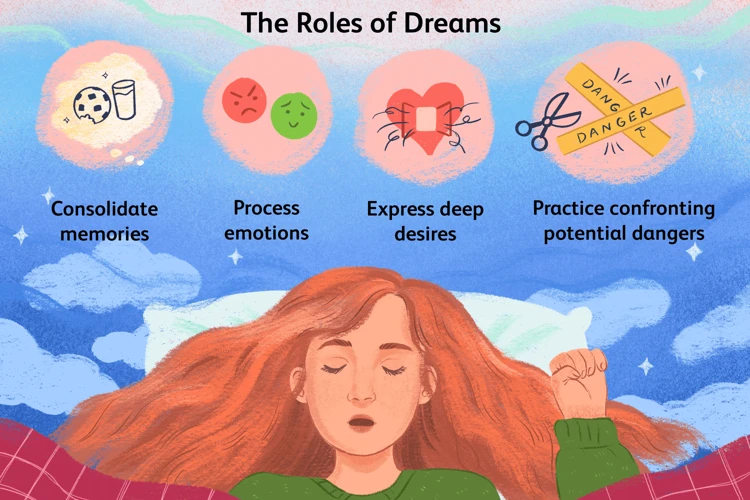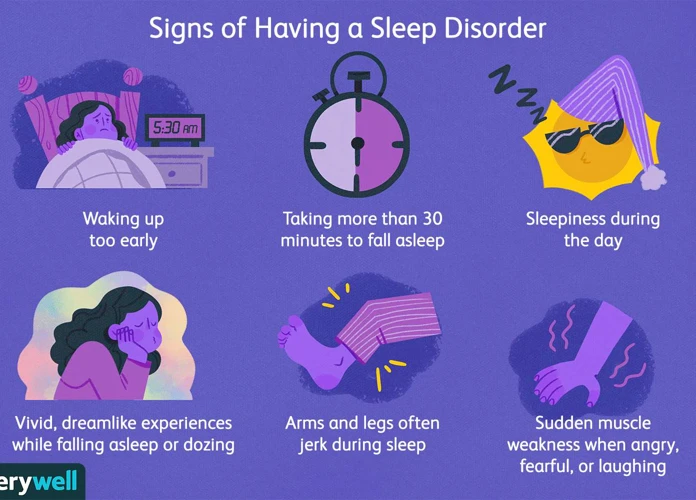Understanding Nightmares

Definition of Nightmares
Causes of Nightmares
- Stress and Anxiety: High levels of stress and anxiety can trigger nightmares. When we are experiencing stress or anxiety in our daily lives, it can infiltrate our dreams and manifest as unsettling scenarios.
- Trauma and PTSD: Individuals who have experienced trauma or are living with post-traumatic stress disorder (PTSD) may have recurring nightmares related to their traumatic experiences. These nightmares can serve as a way for the mind to process and cope with the trauma.
- Medications and Substances: Certain medications, such as antidepressants or blood pressure medications, have been known to influence the content and frequency of dreams, sometimes leading to nightmares. Similarly, substances like alcohol or recreational drugs can disrupt the sleep cycle and contribute to nightmares.
- Sleep Disorders: Sleep disorders, such as sleep apnea or restless legs syndrome, can disrupt the normal sleep cycle and increase the likelihood of experiencing nightmares. These disorders often affect the quality of sleep and can lead to vivid and intense dreams.
- Environmental Triggers: Environmental factors can also play a role in causing nightmares. For example, sleeping in a noisy or uncomfortable environment may lead to disturbed sleep, increasing the likelihood of nightmares. Additionally, certain foods or beverages consumed before bedtime, such as spicy foods or caffeine, can also contribute to nightmares.
Understanding the various causes of nightmares allows individuals to identify potential triggers and develop strategies to manage and prevent them. By addressing the underlying causes, such as reducing stress levels or seeking treatment for sleep disorders, individuals can work towards minimizing the occurrence of nightmares and improving their overall sleep quality and emotional well-being. If you want to learn more about the science of dream emotions and its role in managing nightmares, you can read this article.
Frequency and Duration
When it comes to nightmares, the frequency and duration can vary greatly from person to person. Some individuals may experience nightmares infrequently, perhaps only a few times a year, while others may have them on a more regular basis. The duration of nightmares can also differ, ranging from a few minutes to what feels like an eternity within the dream. It is important to note that the frequency and duration of nightmares may be influenced by various factors such as stress levels, trauma, medications, and underlying sleep disorders. Understanding the frequency and duration of nightmares can provide valuable insights into the impact they have on our emotional well-being and overall sleep quality. Managing nightmare frequency and duration can be aided by various techniques and approaches, including lucid dreaming, which involves becoming aware that you are dreaming while still within the dream state, and can be instrumental in managing intense emotions during nightmares. By exploring the role of lucid dreaming in managing emotions during nightmares, we can gain a better understanding of how to effectively cope with these distressing dreams and promote better emotional well-being. For a deeper exploration of lucid dreaming techniques, you can visit the role of lucid dreaming in managing emotions.
Effects of Nightmares on Emotional Well-Being

Anxiety and Fear
Anxiety and fear are common emotional responses associated with nightmares. When we experience a nightmare, our brain perceives the events and imagery within the dream as real, triggering a physiological response commonly known as the fight-or-flight response. This response is characterized by increased heart rate, rapid breathing, and a surge of adrenaline, leading to feelings of extreme anxiety and fear. These intense emotions can linger even after waking up, causing a sense of unease and apprehension. Over time, repeated exposure to nightmares and the accompanying anxiety and fear can have a detrimental impact on our emotional well-being, potentially leading to heightened anxiety levels, sleep disturbances, and a decrease in overall quality of life. It is important to address and manage these emotions to prevent them from becoming overwhelming. Strategies such as practicing relaxation techniques, seeking professional help, and talking to loved ones can play a crucial role in reducing anxiety and fear associated with nightmares. By actively addressing these emotions, we can work towards restoring emotional balance and improving our overall well-being.
Disrupted Sleep Patterns
Impact on Mental Health
Nightmares can have a significant impact on our mental health. The distressing and often terrifying nature of nightmares can contribute to increased anxiety, depression, and overall psychological distress. Sleep disruptions caused by nightmares can lead to persistent fatigue, irritability, and difficulty concentrating, which can further exacerbate existing mental health issues. These recurring nightmares can also trigger or worsen symptoms of post-traumatic stress disorder (PTSD) in individuals who have experienced trauma. The intense emotional reactions experienced during nightmares can linger even after waking up, affecting our mood and overall well-being throughout the day. It is important to recognize and address the impact of nightmares on our mental health. Seeking professional help, such as therapy or counseling, can provide valuable support and guidance in managing the emotional toll of nightmares and working towards improved mental health and well-being.
Emotional Exhaustion
Emotional exhaustion is a common consequence of experiencing nightmares on a regular basis. When we have distressing dreams that evoke intense emotions such as fear, anxiety, or sadness, it can leave us mentally and emotionally drained upon waking. The vivid and realistic nature of nightmares can make it challenging to separate the emotions felt during the dream from our waking reality, leading to a lingering sense of exhaustion throughout the day. This emotional exhaustion can manifest as a lack of motivation, difficulty concentrating, and an overall sense of fatigue. It can also impact our ability to regulate our emotions effectively, as the intense emotional experiences during nightmares can spill over into our waking lives. Managing emotional exhaustion caused by nightmares involves prioritizing self-care, including engaging in activities that promote relaxation and emotional well-being. This may include practicing mindfulness, engaging in hobbies that bring joy, and seeking support from loved ones or mental health professionals. By addressing and managing emotional exhaustion, we can take steps towards restoring our emotional well-being and improving our overall quality of life.
Managing Nightmares

Keeping a Dream Journal
- Record your dreams: Keeping a dream journal involves writing down your dreams as soon as you wake up. By jotting down the details of your dreams, you can capture the emotions, events, and characters that you experienced during the night. This can provide valuable insights into the themes and patterns that may be recurring in your dreams.
- Include details: When recording your dreams, be sure to include as many details as possible. Write down any vivid images, specific locations, and the feelings that accompanied the dream. This level of detail will help you analyze and interpret your dreams more effectively.
- Use descriptive language: Instead of simply summarizing your dreams, use descriptive language to vividly recount the events. This will help you recreate the atmosphere and emotions of the dream, allowing for a deeper reflection on its potential meanings.
- Reflect and analyze: Regularly review your dream journal to identify recurring themes or symbols. Look for patterns, emotions, or events that may be connected to your waking life experiences. Reflecting on your dreams can provide valuable insight into your subconscious mind and help you understand the underlying emotions that may be affecting your emotional well-being.
- Experiment with interpretation: While there are general symbols and meanings associated with dreams, remember that dream interpretation is highly personal. Trust your own intuition and feelings when deciphering the messages behind your dreams. Consider how the dream made you feel and how it relates to your current emotional state.
Keeping a dream journal can be a powerful tool for self-reflection, understanding your subconscious mind, and gaining insights into your emotional well-being. It allows you to gain a deeper understanding of your dreams and their potential impact on your waking life experiences. By regularly recording, reflecting, and interpreting your dreams, you can begin to unravel the hidden meanings and messages that they might hold.
Identifying Triggers
- Reflect on your daily experiences: Start by reflecting on your daily experiences and events that may have triggered your nightmares. Consider any stressful situations, conflicts, or emotional distress you may have encountered. Identifying potential triggers can help you understand the underlying causes of your nightmares.
- Keep a dream journal: Keeping a dream journal can be a valuable tool in identifying triggers for your nightmares. Write down your dreams immediately upon waking, including any emotions, images, or themes that stood out to you. Over time, you may notice patterns or recurring themes that can provide insights into your triggers.
- Pay attention to physical and environmental factors: Certain physical and environmental factors can contribute to nightmares. Take note of your sleep environment, including noise levels, temperature, and comfort. Additionally, consider if any changes in your diet, medication, or sleep schedule may have influenced your dream content.
- Explore unresolved emotions: Unresolved emotions and past traumas can often manifest in nightmares. Engaging in activities such as therapy or counseling can provide a safe space to explore and process these emotions. By addressing and resolving underlying emotional issues, you may find relief from nightmares.
- Seek professional help if needed: If you are struggling to identify your triggers or if your nightmares significantly impact your daily life, it may be beneficial to seek professional help from a therapist or sleep specialist. They can provide guidance, support, and specific strategies for identifying and managing your triggers.
Practicing Relaxation Techniques
- Deep Breathing: Deep breathing exercises can help calm the mind and relax the body. By focusing on taking slow, deep breaths, you can reduce stress and anxiety. Inhale deeply through your nose, allowing your abdomen to rise, hold for a few seconds, and then exhale slowly through your mouth, letting go of any tension or negative thoughts.
- Progressive Muscle Relaxation: This technique involves systematically tensing and relaxing each muscle group in your body. Start with your toes and work your way up to your head, tensing each muscle for a few seconds and then releasing the tension. This exercise can help release physical tension and promote a sense of relaxation.
- Meditation: Meditation involves directing your attention to a specific object, thought, or activity to achieve a state of mental clarity and calmness. Set aside a few minutes each day to sit in a quiet space, close your eyes, and focus on your breath or a soothing mantra. This practice can help quiet the mind and reduce stress.
- Guided Imagery: Guided imagery involves visualizing calming and peaceful scenes or situations. Find a quiet and comfortable place to sit or lie down, close your eyes, and imagine yourself in a serene and tranquil setting. Focus on the details of the scene and allow yourself to experience the sensations of peace and relaxation.
- Aromatherapy: Certain scents, such as lavender or chamomile, are known for their relaxation-inducing properties. Use essential oils or scented candles to create a calming atmosphere in your bedroom before sleep. Inhaling these scents can help promote relaxation and improve the quality of your sleep.
Practicing relaxation techniques like these can be highly effective in reducing stress and promoting a sense of calmness before bed. By incorporating these techniques into your nightly routine, you can create a peaceful environment conducive to restful sleep and greatly reduce the occurrence of nightmares.
Seeking Professional Help
Importance of Seeking Support

Talking to Loved Ones
One of the most important aspects of managing the emotional impact of nightmares is to have open and honest conversations with our loved ones. Sharing our experiences can provide a sense of relief and support, as well as help us process our emotions. When discussing our nightmares with loved ones, it’s crucial to choose a safe and understanding environment, where we feel comfortable expressing our feelings without judgment. By opening up to our friends, family, or partners, they can offer empathy, validation, and reassurance, reminding us that we are not alone in our experiences. Loved ones can provide a fresh perspective or offer suggestions for coping strategies. They may also be able to identify patterns or triggers that we might have overlooked. While talking to loved ones can be beneficial, it’s essential to respect our own boundaries and only share what we feel comfortable disclosing. If we find it challenging to communicate with loved ones or feel that their understanding is limited, it might be helpful to seek additional professional support in the form of therapy or counseling.
Therapy and Counseling Options
Therapy and counseling options are valuable resources for individuals seeking support in managing nightmares and their emotional impact. There are various approaches and modalities available to address this issue. Cognitive-behavioral therapy (CBT) is a commonly used therapeutic approach that aims to identify and replace negative thought patterns and behaviors associated with nightmares. Through CBT, individuals can learn coping mechanisms, develop relaxation techniques, and challenge the underlying beliefs that contribute to their nightmares. Another effective form of therapy is exposure therapy, where individuals gradually confront the content of their nightmares in a safe environment, helping them build resilience and reduce the intensity of their reactions. Eye Movement Desensitization and Reprocessing (EMDR) is another therapeutic approach that can be helpful in processing and resolving traumatic experiences that may be linked to nightmares. In addition to these therapies, counseling sessions can provide a supportive and empathetic space for individuals to express their emotions and work through the underlying issues leading to their nightmares. It is important to remember that therapy and counseling options should be sought from qualified professionals who specialize in treating sleep disorders and trauma-related issues to ensure effective support and treatment.
Support Groups
Preventing Nightmares
Maintaining a Healthy Sleep Routine
Maintaining a healthy sleep routine is essential for preventing nightmares and promoting emotional well-being. Implementing a consistent bedtime routine helps signal our bodies that it’s time to unwind and prepare for sleep. This routine can include activities such as taking a warm bath, reading a book, or practicing relaxation techniques like deep breathing or meditation. It is also important to establish a regular sleep schedule, going to bed and waking up at the same time each day, even on weekends. This helps regulate our internal body clock and improve the overall quality of our sleep. Creating a sleep environment that is comfortable, cool, and free of distractions can also contribute to a healthy sleep routine. Consider investing in a supportive mattress and pillow, using blackout curtains or an eye mask to block out light, and using earplugs or white noise machines to minimize disruptions. Additionally, avoiding stimulating activities, such as consuming caffeine or exercising close to bedtime, can help promote a more restful sleep. By prioritizing and maintaining a healthy sleep routine, we can reduce the occurrence of nightmares and cultivate better emotional well-being.
Reducing Stress and Anxiety
- Practice relaxation techniques: Engaging in relaxation techniques such as deep breathing, meditation, or mindfulness can help reduce stress and anxiety levels. These techniques promote a sense of calmness, allowing for a more restful sleep and reducing the likelihood of nightmares.
- Exercise regularly: Physical activity is known to alleviate stress and anxiety. Regular exercise can help release endorphins, which are natural mood regulators, and improve overall sleep quality. Aim for at least 30 minutes of moderate-intensity exercise most days of the week.
- Implement stress management strategies: Find healthy ways to manage stress in your daily life. This can include creating a work-life balance, setting boundaries, prioritizing self-care, and seeking support from loved ones or professionals.
- Practice good sleep hygiene: Establishing a consistent sleep routine can contribute to better sleep quality. This includes maintaining a regular sleep schedule, creating a comfortable sleep environment, and avoiding stimulating activities, such as using electronic devices or consuming caffeine close to bedtime.
- Engage in relaxation activities before bed: Wind down before sleep by engaging in activities that promote relaxation. This can include taking a warm bath, reading a book, listening to soothing music, or practicing gentle stretching exercises.
By incorporating these strategies into your daily routine, you can effectively reduce stress and anxiety levels, ultimately improving your emotional well-being and reducing the likelihood of experiencing nightmares. Remember that consistency and patience are key when implementing these techniques, as it may take some time to notice significant changes.
Creating a Soothing Sleep Environment
Creating a soothing sleep environment is crucial for preventing nightmares and promoting restful sleep. Here are some tips to help you create a peaceful and calming atmosphere in your bedroom. Firstly, consider the lighting in your sleep environment. Opt for soft, warm lighting or dimmers to create a cozy ambiance. Avoid bright, harsh lights that can disrupt your sleep. Secondly, pay attention to the temperature of your bedroom. Keep it cool and comfortable, as a stuffy or overheated room can lead to restless sleep. Utilize a fan, air conditioner, or open a window to maintain a pleasant temperature. Additionally, choose bedding and pillows that are comfortable and inviting. Opt for breathable fabrics and invest in quality materials that promote relaxation. Another important aspect of creating a soothing sleep environment is to minimize noise. Use earplugs, white noise machines, or soothing sounds like nature or meditation music to drown out any disruptive noises. Finally, declutter your bedroom and create a calm and organized space. Remove any electronic distractions and keep your bedroom solely for sleeping and relaxation. By setting up a peaceful and inviting sleep environment, you can create the ideal conditions for a restful night’s sleep and reduce the chances of experiencing nightmares.
Avoiding Stimulants
- Avoiding Caffeine: Caffeine is a stimulant commonly found in coffee, tea, energy drinks, and chocolate. Consuming these caffeinated products, especially close to bedtime, can interfere with your ability to fall asleep and may increase the likelihood of experiencing nightmares. It is important to limit or avoid caffeine intake, particularly in the evening hours, to promote better sleep quality and reduce the occurrence of nightmares.
- Alcohol and Tobacco: Alcohol and tobacco are substances that can disrupt the quality of your sleep and increase the likelihood of nightmares. While alcohol may make you feel drowsy initially, it can negatively impact the quality of your REM sleep, which is the stage of sleep where most dreaming occurs. Similarly, smoking tobacco or using nicotine products close to bedtime can interfere with your sleep patterns and potentially contribute to nightmares. It is advisable to avoid or limit the consumption of alcohol and tobacco to improve your sleep and reduce the chances of having distressing dreams.
- Stimulant Medications: Some medications, such as certain antidepressants, stimulant medications used to treat attention-deficit/hyperactivity disorder (ADHD), and some over-the-counter cold and allergy medications, can have stimulating effects on the brain and disrupt sleep patterns. If you are taking any medications that may be contributing to your nightmares, it is important to speak with your healthcare provider about potential alternatives or adjustments to your medication regimen.
Avoiding stimulants, such as caffeine, alcohol, and tobacco, can have a positive impact on your sleep quality and reduce the likelihood of experiencing nightmares. By consciously limiting or eliminating the consumption of these substances, especially in the hours leading up to bedtime, you can create a more conducive sleep environment and promote better overall sleep hygiene. Additionally, it is crucial to be aware of any stimulant medications you may be taking and discuss potential alternatives with your healthcare provider if they are impacting your sleep and contributing to nightmares. Making these lifestyle adjustments and avoiding stimulants can contribute to better sleep and a decreased frequency of disturbing dreams.
Conclusion
Frequently Asked Questions
What is the definition of nightmares?
Nightmares are vivid and distressing dreams that can cause intense fear, anxiety, and distress during sleep.
What can cause nightmares?
Nightmares can be caused by a variety of factors, including stress, trauma, medications, sleep disorders, and certain medical conditions.
How often do nightmares occur?
The frequency of nightmares can vary from person to person. Some may experience them occasionally, while others may have nightmares on a recurring basis.
Can nightmares affect emotional well-being?
Yes, nightmares can have a significant impact on emotional well-being. They can cause feelings of anxiety, fear, and emotional exhaustion, which can affect daily life and overall mental health.
What are the effects of nightmares on sleep patterns?
Nightmares can disrupt sleep patterns, leading to difficulties falling asleep or staying asleep. This can result in sleep deprivation and daytime fatigue.
How can nightmares affect mental health?
Nightmares have been linked to mental health conditions such as anxiety disorders, post-traumatic stress disorder (PTSD), and depression. They can exacerbate symptoms and contribute to emotional distress.
Can keeping a dream journal help with nightmares?
Yes, keeping a dream journal can be helpful in managing nightmares. It allows individuals to explore patterns, themes, and emotions in their dreams, which can provide insight and aid in developing coping strategies.
What are common triggers for nightmares?
Common triggers for nightmares may include stressful life events, traumatic experiences, anxiety, certain medications, substance abuse, and sleep disorders.
How can relaxation techniques help manage nightmares?
Practicing relaxation techniques, such as deep breathing exercises, meditation, or progressive muscle relaxation, can help reduce anxiety and promote a sense of calm, making it easier to fall asleep and potentially reduce the occurrence of nightmares.
When should I seek professional help for nightmares?
If nightmares are frequent, severe, or significantly impacting your daily life and emotional well-being, it may be beneficial to seek professional help from a therapist or mental health professional who specializes in sleep disorders or trauma.








